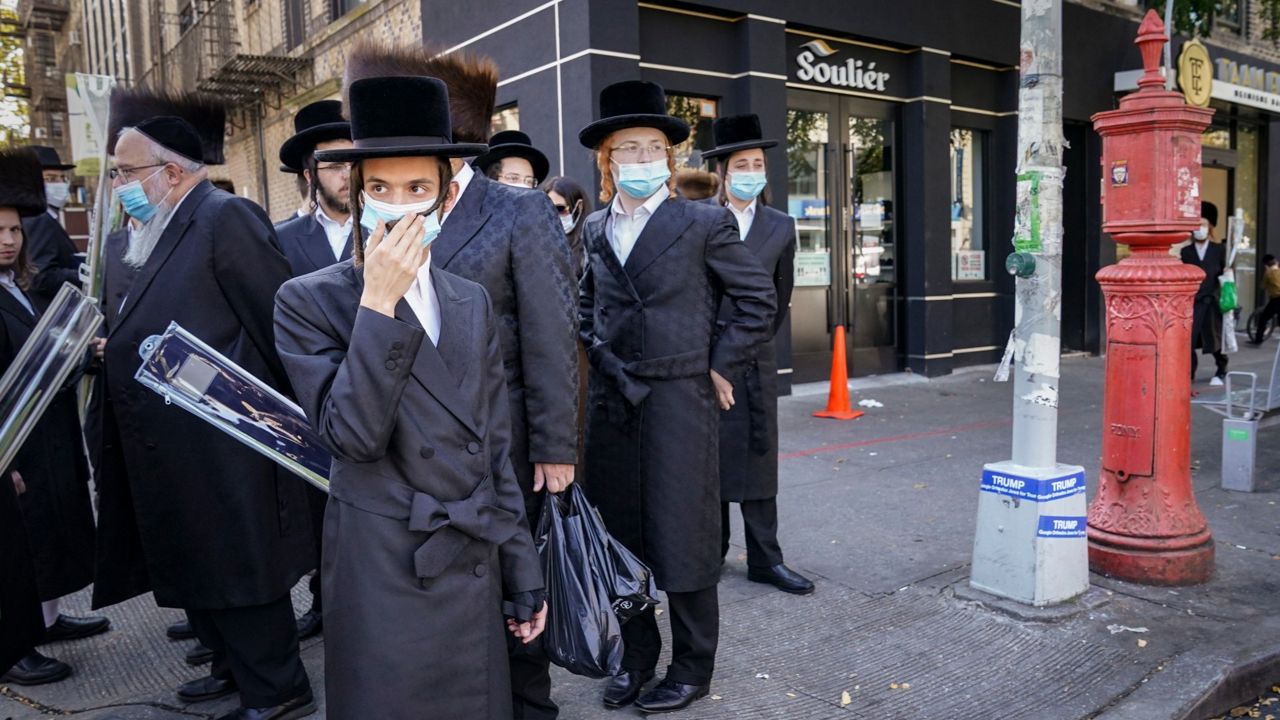NEW YORK - Mayor Bill de Blasio said Tuesday he and his administration should have done a better job of communicating the dangers of the coronavirus to the city’s Orthodox Jewish communities.
The mayor met with prominent Orthodox Jewish leaders on Monday night as the city tries to bring down cases in parts of Brooklyn and Queens. Some Orthodox Jewish residents have reacted angrily to new restrictions imposed by the state earlier this month.
“I think what the meeting really helped me to appreciate was that so many people in the community have suffered,” he said. “I look back now and understand there was just more dialogue that was needed,” he went on to say. “I certainly got very frustrated at times when I saw large groups of people still out without masks, but I certainly want to express my regret that I couldn't figure out how to do that better.”
While the decision is up to Governor Andrew Cuomo, de Blasio said again he expects restrictions will be lifted soon in hot spots in central Queens if the infection rates continue to decline. Cuomo has said an announcement on the clusters could come as early as Wednesday.
“I have every expectation that the state is preparing to act to remove restrictions in Central Queens, but again pending a final look at the data,” de Blasio said Tuesday.
The mayor also revealed results from the mandatory testing program implemented in NYC schools. After receiving over 16,000 test results, 28 students and staff tested positive for the coronavirus between Oct. 9 and Oct. 10, putting the infection rate at 0.17%.
“The proof is in the results and these are amazing results,” he said. “This really bodes well for the future of our schools and our ability to fight and overcome this disease.”
Meanwhile, the mayor announced a plan to get people to the polls safely, including a new fact sheet, which is available in 13 languages and available at all city COVID-19 testing sites. Early voting begins this Saturday. All voting sites are considered essential businesses and will be open in COVID-19 hot spots.
Mayor de Blasio also revealed the city’s response rate of 61.8% for the U.S. Census, which wrapped last Friday.
“Everything that was done to make it impossible for the census to actually get a fair count in the city and yet, in the end, the self response rate was 61.8%,” he said. “That’s essentially identical to the rate from 2010 but with so many more challenges in the way.”
The city’s response rate was higher than what the U.S. Census Bureau predicted it would be in 2019 and higher than the rates in cities like Los Angeles, Chicago and Houston. For every household that’s counted with at least two people, the city gets $7,000 per year or $70,000 over 10 years.



